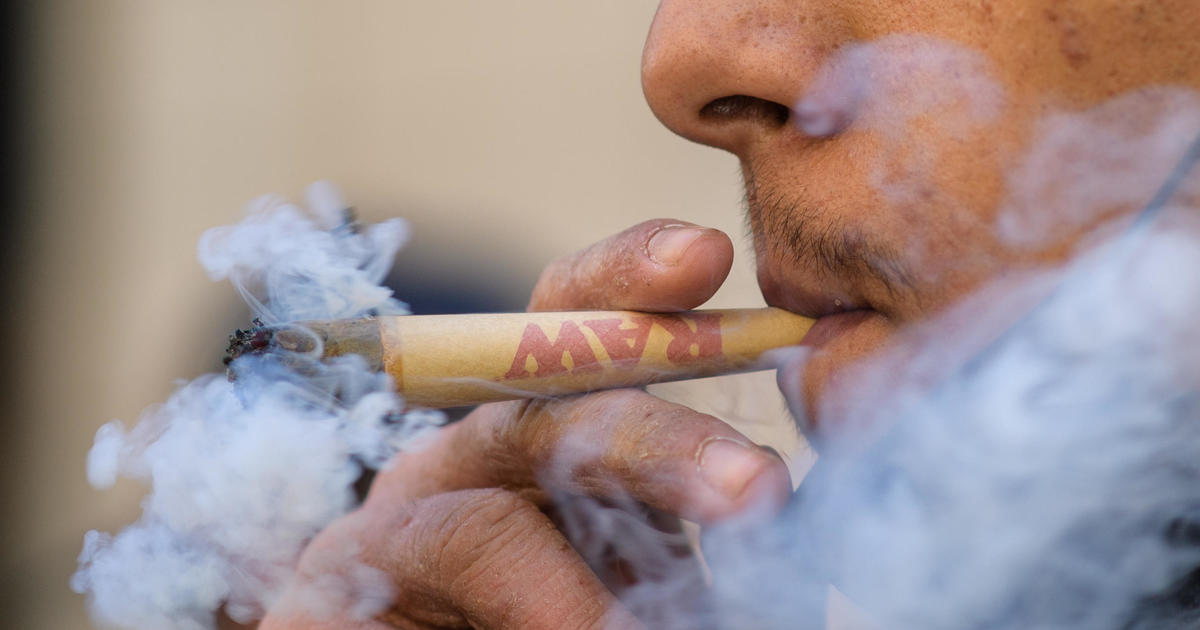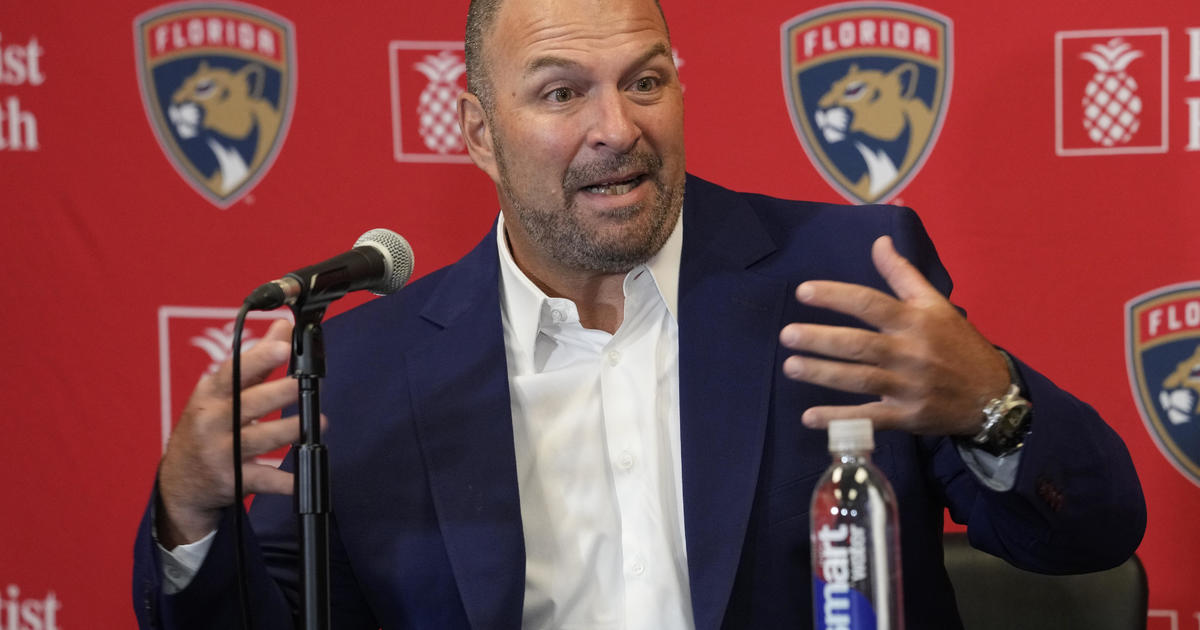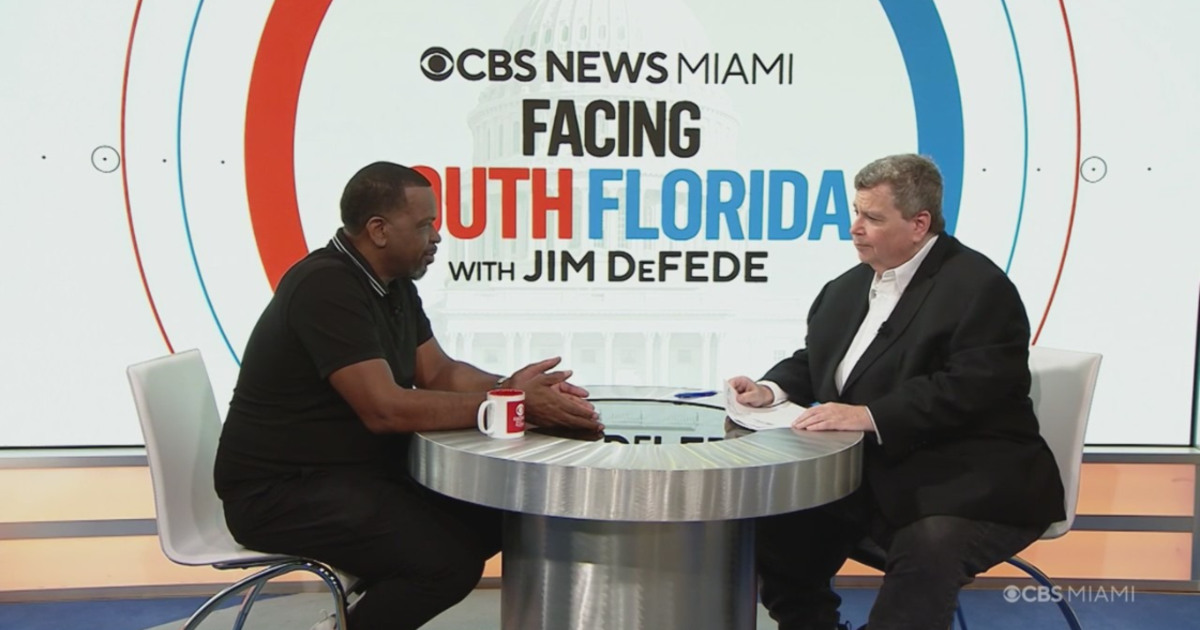Lawmakers Could Be Setting Up Framework For Medical Marijuana
TALLAHASSEE (CBSMiami/NSF) - As much as they dislike a ballot question that would let doctors write prescriptions for marijuana, Republican lawmakers are laying the groundwork to implement the proposal, should voters approve it in November.
Legislation opening the door for a strain of marijuana that doesn't get users high but can dramatically reduce life-threatening seizures in children with epilepsy could also create the framework for regulation of the more traditional medical marijuana on the ballot in November.
"It would be naïve to suggest that what we're doing now would have no effect on what a regulatory scheme would look like if the constitutional amendment were passed. As this process goes forward, you'll see more discussion of long-term implications of what we're doing," said Senate Criminal and Civil Justice Appropriations Chairman Rob Bradley, a Fleming Island Republican and former prosecutor who is co-sponsoring the Senate's plan to legalize the non-euphoric cannabis.
GOP leaders in both chambers are backing proposals that would make available a strain of cannabis that is low in tetrahydrocannabinol, the psychoactive component in marijuana, but high in the derivative cannabidiol, or CBD. They've lined up against the constitutional amendment, backed by Orlando trial lawyer John Morgan, even though many polls show that the ballot measure is widely popular among nearly all voting blocs.
The House and Senate are split on how much --- if any --- regulation the state should impose on growers and distributors of the substance, sometimes referred to by the most widely known strain, "Charlotte's Web," named after a Colorado girl with a rare form of epilepsy.
Meanwhile, Florida investors, nurserymen and growers across the state are lining up to get in on the ground floor of the medical marijuana movement in Florida, but with an eye on the constitutional proposal on the November ballot. They're hoping that any legislative proposal approved this year would give them some idea of what to expect should the amendment receive the 60 percent approval required for passage.
"They are looking at the larger marketplace and the longer play. We're soon to be the third-largest state in the nation. Realistically, we have a diversity of illnesses in this state that seemingly could benefit from a larger application," said Louis Rotundo, a lobbyist representing the Florida Medical Cannabis Association, a recently formed non-profit organization whose board of directors includes investors and landowners.
The Senate's proposal would create a statewide "compassionate use" registry of individuals deemed by their physicians to be eligible for "low-THC" treatment and would allow state health officials to authorize from one to four dispensaries to distribute the substance, which could contain no more than .5 percent of THC and at least 15 percent CBD.
The House plan (HB 843), in its current form, would allow for cannabis with .8 percent or less of THC and more than 10 percent of CBDs, which supporters believe could be used to treat a wider range of neurological and medical disorders than the Senate measure (SB 1030). The House plan would give growers, distributers, and users an "affirmative defense" if they are arrested or charged with crimes but lacks the regulatory structure included in the Senate version.
Rep. Matt Gaetz, R-Fort Walton Beach, said he is working with Bradley to address concerns raised during a House Appropriations Committee last week from members who "wanted to see more oversight and regulation and control over any form of marijuana, even non-euphoric forms of marijuana." Gaetz said his bill will likely not be heard this week as previously scheduled by the Judiciary Committee, whose chairman Dennis Baxley has expressed concerns about the proposal, while he works out the details.
"Our plan is not to influence the outcome of the constitutional amendment or the implementation of the constitutional amendment one way or the other. We're trying to pass a bill this year to get some medical cannabis to people as soon as possible," Gaetz said Monday.
When asked if the regulation of the low-THC, high-CBD marijuana could be used to implement the amendment if it passes, Gaetz said, "I really don't care."
But Baxley acknowledged that whatever lawmakers do this year could be used as a template next year. The constitutional amendment gives the Legislature nine months to implement the proposal.
"Everything we're doing could be preparation for what kind of enabling legislation would you start with should it pass," Baxley, R-Ocala, said. "But I don't want whatever we do on this to be the first step off the sled of just going after open marijuana chaos that we see in Colorado and California."
Bradley's proposal, co-sponsored by Sen. Jeff Brandes, R-St. Petersburg, and Sen. Aaron Bean, R-Fernandina Beach, received just one "no" vote from the Senate Criminal Justice Committee on Monday. Sen. Thad Altman, R-Melbourne, said he voted against the measure because he believes more scientific testing is needed on the substance, which does not have FDA approval.
Colorado's medical marijuana industry generated $263 million in sales last year, according to one estimate. Rotundo said the members of his group are paying close attention to how the Legislature handles Charlotte's Web even though most won't manufacture the substance and are more interested in the estimated 1.5 million people who could be eligible for medical marijuana if the amendment passes.
"Businesses like regulatory certainty. I would hope that the Legislature would strongly consider an iterative approach and, if they're going to do this now, that the next phase will not be a radical departure from that," Rotundo said.
This report is by Dara Kam with The News Service of Florida.



